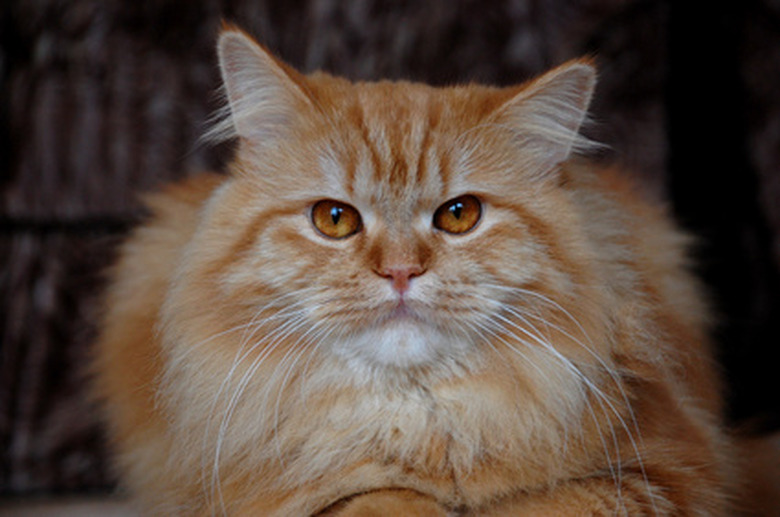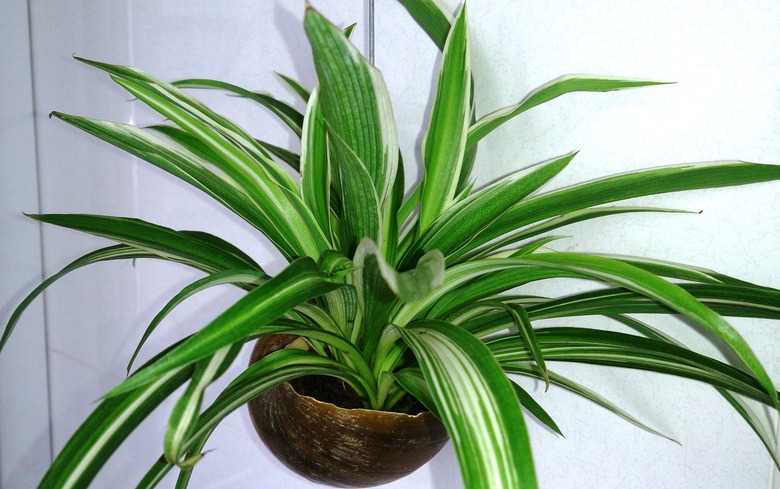The Toxicity Of The Airplane Plant To Pets In The Home
The airplane plant (Chlorophytum comosum), also known as the spider plant, ribbon plant and spider ivy, is a popular houseplant with long, grass-like leaves.
Though it is considered relatively pet-safe compared to other common household plants, pet owners should still do their best to keep this indoor plant away from cats and dogs, as they could end up with an upset tummy if they start munching on spider plant foliage.
Are Spider Plants Toxic to Cats?
The spider plant is considered a nontoxic plant for cats by the American Society for the Prevention of Cruelty to Animals, or ASPCA, because eating it is not known to cause serious health problems in cats.
However, while nibbling or eating spider plant parts may not endanger your feline friend's life, pet parents should be aware that according to the ASPCA and some veterinary experts, eating spider plant material can cause mild stomach upset in cats. It is always a good idea to call a poison control hotline if you believe your pet has been eating plants.
**If cats eat spider plants, they may experience vomiting and increased salivation. Spider plant toxicity in cats may also manifest as a refusal to eat, known as anorexia.** Cat owners need to be aware that cats can suffer a serious health issue known as hepatic lipidosis if they go too many days without eating, so if these symptoms do not resolve, a visit to the veterinarian is in order.
Are Spider Plants Poisonous to Dogs?
Though cats are more likely to climb furniture to try to get to a spider plant's grass-like leaves, dogs can also manage to ingest this plant. A dog may encounter a plantlet that has dropped from the plant, for example. **Like cats, dogs may suffer gastrointestinal distress if they chew on the leaves or other parts of a spider plant.**
Warning
Spider plants can cause mild, transient gastrointestinal symptoms in cats and dogs, including vomiting, increased salivation and anorexia.
Spider Plants in the Home
Even if a plant is considered pet-friendly or cat-safe, some furry friends may experience stomach upset if they eat too much of any plant material. Therefore, it is best to situate spider plants and other plants in your home beyond the reach of curious cats and dogs.
Keeping spider plants and other common houseplants in a room to which your pets do not have access or growing them in a hanging basket can help prevent your pets from munching on spider plant leaves.
Note that indoors, spider plants should be kept at temperatures above 45°F, and they grow best in medium light. They can handle quite a bit of shade and will fare poorly in direct sunlight.
Tip
Spider plants can be grown in hanging baskets in order to keep them away from pets.
Spider plants are low-maintenance plants. They should be watered and misted during the growing season; however, it is best to use distilled water rather than tap water, which contains fluoride that can cause the tips of the leaves to dry up.
Spider plants produce plantlets, which can be removed from the mother plant and replanted. If you want to propagate spider plants in this manner, however, be careful not to fertilize them excessively, which can result in fewer plantlets.
References
- ASPCA: Spider Plant
- University of Arkansas Research and Extension: Plant of the Week – Spider Plant (Airplane Plant)
- North Carolina State Extension: Chlorophytum comosum
- Merck Manual Veterinary Manual: Poisonous Houseplants and Ornamentals
- ASPCA: Is That Houseplant Safe for Your Pets?
- University of Illinois Urbana-Champaign College of Veterinary Medicine: Hepatic Lipidosis: A Serious Problem When Cats Stop Eating

